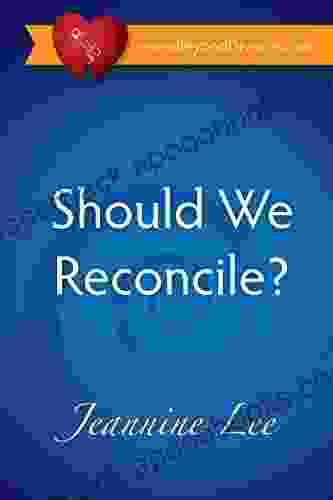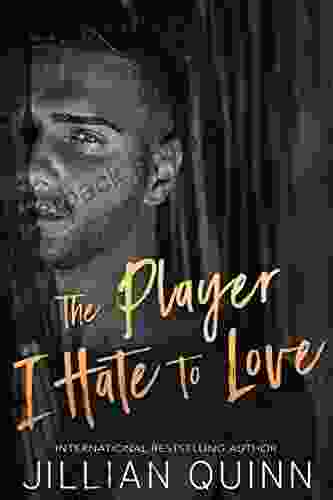Should We Reconcile Jeanine Lee?Unveiling the Scars of Mass Incarceration

: The Weight of a Broken Past
In the sprawling tapestry of the American criminal justice system, stories of shattered lives and lost potential are interwoven, forming a grim and sobering narrative. The United States incarcerates more people than any other nation in the world, a staggering statistic that underscores the profound and systemic failures within our society. At the heart of this crisis lies a multitude of broken lives and shattered dreams, each carrying the weight of a broken past.
One such story is that of Jeanine Lee, a woman whose life took a tragic turn when she was wrongfully convicted of a crime she did not commit. Sentenced to 27 years in prison, Lee spent nearly two decades behind bars, enduring the harsh realities of incarceration and the crushing weight of injustice. Her case, a poignant example of the devastating consequences of mass incarceration, has ignited a fierce debate about the need for reconciliation and redemption in a society grappling with its own history of injustice.
5 out of 5
| Language | : | English |
| File size | : | 1050 KB |
| Text-to-Speech | : | Enabled |
| Screen Reader | : | Supported |
| Enhanced typesetting | : | Enabled |
| Word Wise | : | Enabled |
| Print length | : | 15 pages |
| Lending | : | Enabled |
The Incarceration Crisis: A Legacy of Systemic Racism
The United States' mass incarceration crisis is deeply rooted in a history of systemic racism and socioeconomic disparities. Communities of color, particularly African Americans and Latinos, have been disproportionately targeted and criminalized, leading to alarmingly high rates of incarceration. The war on drugs, a misguided and racially biased policy, has played a significant role in fueling this crisis, resulting in the incarceration of countless nonviolent drug offenders.
The consequences of mass incarceration extend far beyond the prison walls, leaving lasting scars on families, communities, and society as a whole. Incarcerated individuals face numerous challenges upon reentry, including difficulty finding employment, securing housing, and accessing healthcare. Children of incarcerated parents are more likely to experience poverty, educational difficulties, and involvement in the criminal justice system. The economic costs of mass incarceration are also staggering, with billions of dollars spent on prisons and jails, diverting resources from essential public services such as education and healthcare.
Jeanine Lee's Story: A Symbol of Injustice
Jeanine Lee's wrongful conviction stands as a stark reminder of the flaws and biases that permeate the American criminal justice system. In 1993, she was falsely accused of murdering her two young children. Despite a lack of physical evidence and inconsistencies in the prosecution's case, Lee was convicted and sentenced to 27 years in prison.
During her nearly two decades of incarceration, Lee maintained her innocence, fighting tirelessly to clear her name. In 2010, DNA evidence finally exonerated her, and she was released after spending over half of her life behind bars. Lee's case exposed the grave injustices that can occur when the criminal justice system fails to uphold its fundamental principles of due process and fairness.
Reconciliation and Redemption: A Path to Healing
In the wake of her wrongful conviction, Jeanine Lee has become a powerful advocate for criminal justice reform and reconciliation. She believes that true justice can only be achieved through a process of acknowledging the harm caused, taking responsibility, and working towards healing and restoration.
The concept of reconciliation in the context of mass incarceration is complex and multifaceted. It involves recognizing the wrongs that have been committed, addressing the systemic factors that perpetuate injustice, and creating opportunities for healing and reintegration. Reconciliation is not about erasing the past or absolving individuals of responsibility for their actions. Rather, it is about creating a more just and equitable society that values redemption and rehabilitation.
The Challenge of Reconciliation: Facing the Uncomfortable Truths
Reconciling with the legacy of mass incarceration is a daunting task that requires confronting uncomfortable truths. It demands an acknowledgment of the systemic racism and socioeconomic disparities that have fueled this crisis, as well as a willingness to address the root causes of crime and violence.
Reconciliation also requires a shift in public attitudes towards people who have been incarcerated. Too often, formerly incarcerated individuals face stigma and discrimination, making it difficult for them to rebuild their lives and contribute to society. We must challenge these biases and create a more inclusive society that welcomes people back after they have served their time.
The Power of Forgiveness and the Search for Justice
Forgiveness is a complex and deeply personal response to injustice. It does not mean condoning or excusing wrongng, but rather letting go of anger and resentment in Free Download to move forward. Forgiveness can be a powerful tool for healing, both for victims and for those who have caused harm.
Jeanine Lee has chosen to forgive those who wronged her, not because she excuses their actions, but because she believes that holding on to anger and bitterness will only perpetuate the cycle of violence and injustice. Forgiveness allows her to move forward with her life and to focus on making a positive contribution to society.
Towards a More Just and Equitable Society
Reconciling with the legacy of mass incarceration is a necessary step towards creating a more just and equitable society. It requires a fundamental shift in our approach to crime and punishment, one that emphasizes rehabilitation and restorative justice over retribution and punishment.
We must invest in education, job training, and other programs that provide opportunities for people who have been incarcerated to rebuild their lives. We must also work to reduce recidivism by addressing the underlying social and economic factors that contribute to crime.
By confronting the uncomfortable truths of our past and present, and by embracing the principles of reconciliation, forgiveness, and redemption, we can create a society where all people have the opportunity to live full and meaningful lives. Jeanine Lee's story serves as a powerful reminder of the importance of this work and the transformative power of hope and healing.
: A Call for Action
The question of whether or not we should reconcile Jeanine Lee is ultimately a question about the kind of society we want to live in. Do we want a society that perpetuates injustice and division, or do we want a society that values healing, redemption, and reconciliation?
Reconciling with the legacy of mass incarceration is not an easy task, but it is a necessary one. It requires courage, compassion, and a willingness to confront uncomfortable truths. But it is a task that we must undertake if we are to create a more just, equitable, and humane society for all.
Jeanine Lee's story is a powerful reminder of the human cost of mass incarceration. It is a story of resilience, forgiveness, and hope. May her story inspire us all to work towards a better future, a future where justice and mercy prevail.

5 out of 5
| Language | : | English |
| File size | : | 1050 KB |
| Text-to-Speech | : | Enabled |
| Screen Reader | : | Supported |
| Enhanced typesetting | : | Enabled |
| Word Wise | : | Enabled |
| Print length | : | 15 pages |
| Lending | : | Enabled |
Do you want to contribute by writing guest posts on this blog?
Please contact us and send us a resume of previous articles that you have written.
 Book
Book Novel
Novel Page
Page Chapter
Chapter Text
Text Story
Story Genre
Genre Reader
Reader Library
Library Paperback
Paperback E-book
E-book Magazine
Magazine Newspaper
Newspaper Paragraph
Paragraph Sentence
Sentence Bookmark
Bookmark Shelf
Shelf Glossary
Glossary Bibliography
Bibliography Foreword
Foreword Preface
Preface Synopsis
Synopsis Annotation
Annotation Footnote
Footnote Manuscript
Manuscript Scroll
Scroll Codex
Codex Tome
Tome Bestseller
Bestseller Classics
Classics Library card
Library card Narrative
Narrative Biography
Biography Autobiography
Autobiography Memoir
Memoir Reference
Reference Encyclopedia
Encyclopedia Katharine Rapoport
Katharine Rapoport Joer Feagin
Joer Feagin Mike Shepherd
Mike Shepherd Jessica Simpson
Jessica Simpson Jesse Saunders
Jesse Saunders Kristina Smith
Kristina Smith Susan Page Davis
Susan Page Davis Jessie Burton
Jessie Burton Paul Slade
Paul Slade Jennifer Mackewn
Jennifer Mackewn Jo Ann Carson
Jo Ann Carson Jerry Onosike
Jerry Onosike R Larry Todd
R Larry Todd Kenneth Johnstone
Kenneth Johnstone Lila Holley
Lila Holley Jessica Marquez
Jessica Marquez Phil M Cohen
Phil M Cohen Sa Id Salaam
Sa Id Salaam Jeannine Lee
Jeannine Lee Jessica Ramer
Jessica Ramer
Light bulbAdvertise smarter! Our strategic ad space ensures maximum exposure. Reserve your spot today!
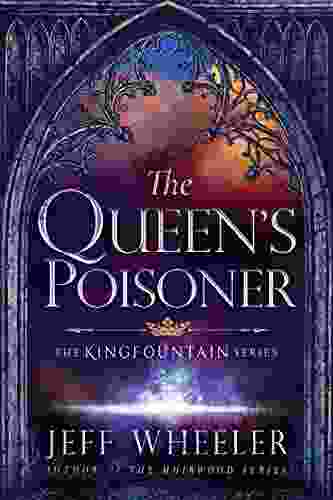
 Aleksandr PushkinThe Queen Poisoner: A Must-Read Historical Fantasy That Will Captivate Your...
Aleksandr PushkinThe Queen Poisoner: A Must-Read Historical Fantasy That Will Captivate Your...
 Jeremy MitchellTracing the Past, Shaping the Future: A Journey of Historical Exploration and...
Jeremy MitchellTracing the Past, Shaping the Future: A Journey of Historical Exploration and... Andres CarterFollow ·19.2k
Andres CarterFollow ·19.2k Bryan GrayFollow ·3k
Bryan GrayFollow ·3k Edgar CoxFollow ·18.3k
Edgar CoxFollow ·18.3k Easton PowellFollow ·2.1k
Easton PowellFollow ·2.1k Jeffery BellFollow ·19.2k
Jeffery BellFollow ·19.2k Haruki MurakamiFollow ·12.7k
Haruki MurakamiFollow ·12.7k Harold PowellFollow ·11.1k
Harold PowellFollow ·11.1k Jake PowellFollow ·8.6k
Jake PowellFollow ·8.6k

 Preston Simmons
Preston SimmonsEmbark on a Literary Odyssey with "Walking on Water": A...
Prepare to be swept...
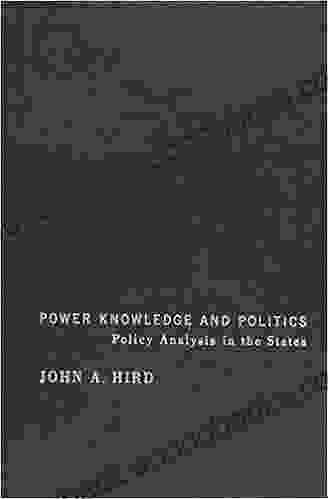
 Ernesto Sabato
Ernesto SabatoUnlocking Policy Analysis: Dive into the Intricacies of...
: The Realm of Policy...
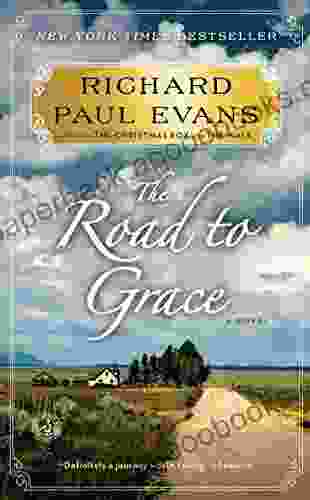
 Forrest Reed
Forrest ReedThe Road to Grace Walk: A Journey of Spiritual Growth and...
In the tapestry of life, we...
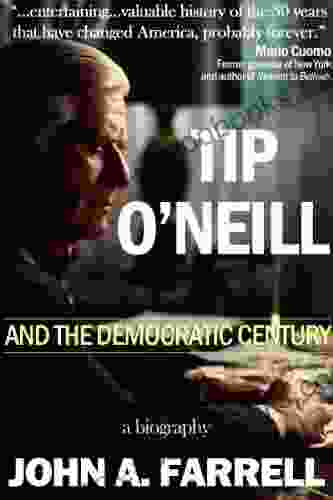
 Evan Simmons
Evan SimmonsTip Neill and the Democratic Century: A Political Odyssey...
The Rise of a Political Giant In the...

 Mark Mitchell
Mark MitchellUnwrap the Magic: A Review of Christmas Memory by Richard...
As the cold winter months draw near, and...

 Percy Bysshe Shelley
Percy Bysshe ShelleyBeyond the Veil: Delve into the Realm of Spirit with In...
Unveiling the Mysteries of the Unseen...
5 out of 5
| Language | : | English |
| File size | : | 1050 KB |
| Text-to-Speech | : | Enabled |
| Screen Reader | : | Supported |
| Enhanced typesetting | : | Enabled |
| Word Wise | : | Enabled |
| Print length | : | 15 pages |
| Lending | : | Enabled |


